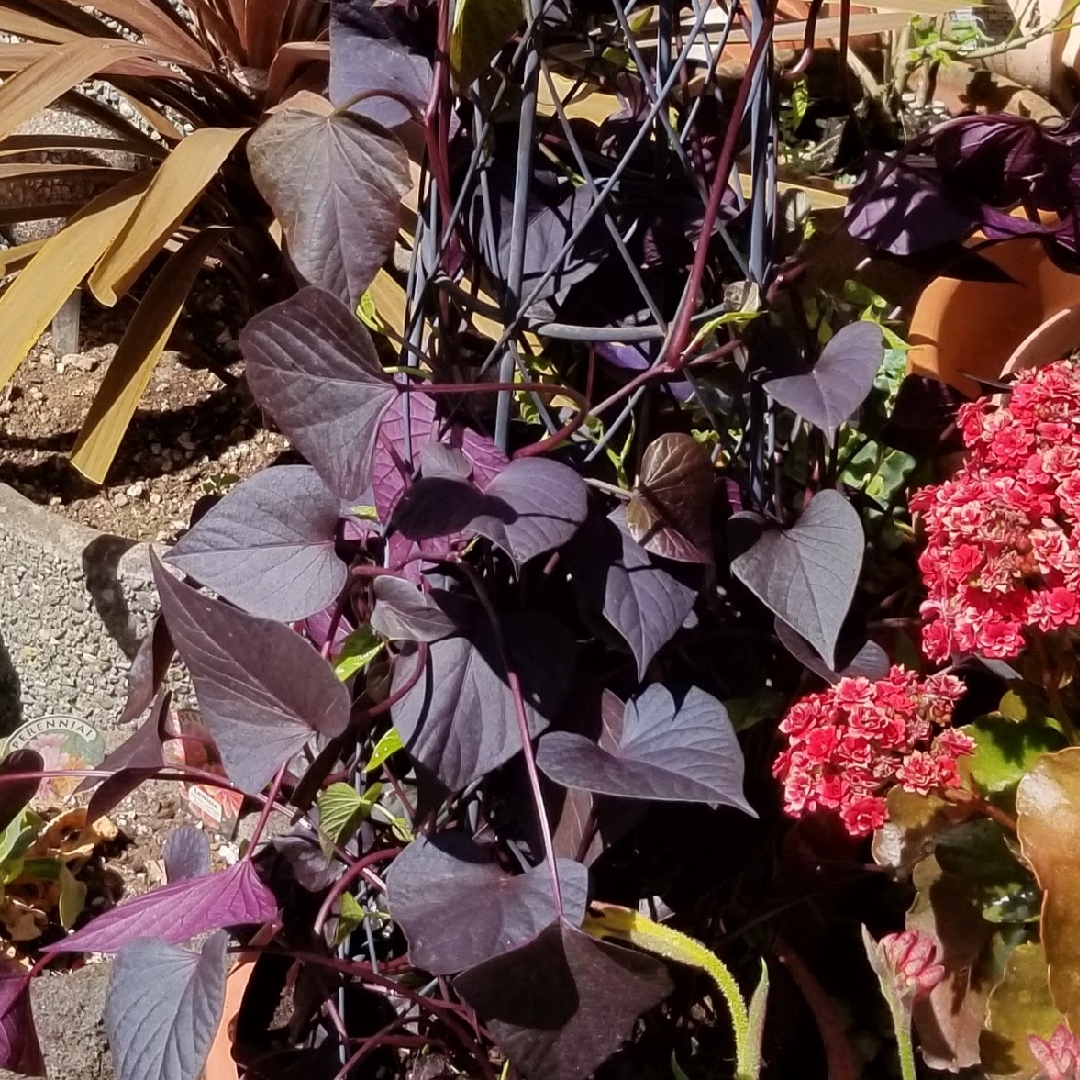
Ipomoea Batatas 'Solar Tower Black'
Sweet Potato Vine 'Solar Tower Black'
Sweet potato is not closely related to potato. Sometimes known by the common name yam, sweet potato should not be confused with Dioscorea which are also known as yams but belong to a different plant family. There are two types of sweet potato plants - vines or bushes. The leaves are up to 10 cm long, often with toothed margins. Flowers have petals that are lavender to pale purple or white, forming a trumpet shape up to 7 cm long, often darker in colour inside the tube. The sweet potato is the tuberous root of the plant. 'Solar Tower Black' is a fast-growing, self-climbing plant, suitable for growing up a trellis or wall.
Contributed by @ShelleySnyder
-
Full sun
-
Frequent watering
-
Not Frost hardy
-
Light and free draining
Common name
Sweet Potato Vine 'Solar Tower Black'
Latin name
Ipomoea Batatas 'Solar Tower Black'
type
Vegetable
family
Convolvulaceae
ph
4.5 - 7.0 Acid - Neutral
Plant & bloom calendar
-
Best time to plant
-
When to harvest
full grown dimensions
 0.80 M
1.20 M
0.80 M
1.20 M
Ipomoea Batatas 'Solar Tower Black'
Sweet potato is not closely related to potato. Sometimes known by the common name yam, sweet potato should not be confused with Dioscorea which are also known as yams but belong to a different plant family. There are two types of sweet potato plants - vines or bushes. The leaves are up to 10 cm long, often with toothed margins. Flowers have petals that are lavender to pale purple or white, forming a trumpet shape up to 7 cm long, often darker in colour inside the tube. The sweet potato is the tuberous root of the plant. 'Solar Tower Black' is a fast-growing, self-climbing plant, suitable for growing up a trellis or wall.
Growing slips
From Mid Spring TO Late Spring
Sweet potatoes grow from slips - the shoots that sprout from the tuber. Slips can be bought, or can be grown from a tuber. If growing from a tuber, cut the tuber in half (crosswise),and place the cut face down in damp vermiculite, and place in a warm place, such as an airing cupboard, or propagator, and allow the sprouts to form. Remove the shoots (or slips) with a sharp knife when they are 2"-3" long., and pot them in to pots of cutting compost, and leave them to form roots in the greenhouse, or in a propagator.
Planting slips
From Early Summer TO Mid Summer
When the slips have developed roots, harden them off gradually, and then plant them out in light, free-draining soil, by making holes 2"-3" deep and carefully placing the plant in the hole, with the leaves above the level of the soil, and carefully fill the hole over the roots, then firm in. Water well.The plants need heat of around 70 deg.F to thrive, so in cooler climates, grow them in the greenhouse.















